Branching Path: Bryan Vitale's Top 10 Games of 2023
Is 2023 firmly in the rear-view mirror at this point in 2024? Probably. The year is just about to take off with the triple-whammy of excellent RPG releases in Like a Dragon: Infinite Wealth, Granblue Fantasy: Relink, and Persona 3 Reload. That's not even including upcoming major releases in the Final Fantasy and SaGa series, and a new Dragon's Dogma. Needless to say, RPG fans are spoiled for choice early on in 2024.
Writing about 2023 games may not be vogue in the deluge of the new and exciting, but I also realize this might be my last chance to get a formal list put together. I've been publishing a yearly list since 2017, a streak that I definitely don't want to lose for no real good reason. No caveats or honorable mentions this go around, just my top ten favorite games from 2023.
10) Starfield
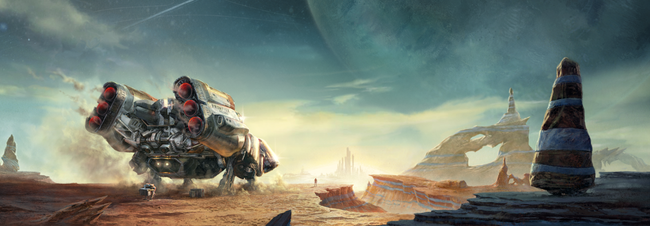
Before Starfield was released, I had no idea how much of a lasting impact it would have on me. Like many others, Skyrim was a huge timesink for me when I was younger, and I've played most of the major Fallout titles (sorry, Fallout Tactics) before Bethesda even owned the IP. I've never been a huge fan of Sci-Fi or Science Fantasy, and I wasn't sure if Starfield would be a one-and-done experience, or something I would lose myself in for hours on end.
As it turns out...it was unfortunately more of the former. I did enjoy my time with Starfield, that's why it's on this list. I did think that some of the story-telling aspects involving the Starborn, the ship customization, the way character builds worked around the skill system, and even combat were done quite well. However, one thing that I've never really latched onto with either Fallout 4 or 76 or now Starfield is the act of building up a base, or outpost, or anything along those lines. In addition to that, I really struggled to find myself endeared to much of the cast of Constellation. Starfield really remains on this list because I enjoyed exploring the number of detailed outposts, organically finding a loadout and build that fit my playstyle. The way that Starfield handles New Game Plus is also incredibly unique, and I hope that at some point in 2024, I can find time to revisit the game to see if another playthrough will improve my opinion of it.
9) Chained Echoes

I'm using the RPG Site stance to justify incorporating this game into my 2023 list because it released in December 2022, and I played it in January. Is that how I've always done my personal list? Honestly, I don't remember, but I didn't include Chained Echoes last year, so I'll place it in this year's list. Every year, I try to give a fair shake for some indie or smaller-scale games to see if I can find a gem that stands up against the more established series and sequels. Usually on the RPG front, but occasionally outside of that genre as well. Chained Echoes was a title with incredibly positive word of mouth that seemed like it could be an early contender for one of the best RPGs of the year.
I enjoyed my time with Chained Echoes -- the number of nostalgic callbacks to a surprisingly number of RPG series is impressive in its own right. Matthias Linda is clearly a fan of the genre and it shows. The two-line battle system and Overdrive meter is a nice wrinkle to what would otherwise be a well-worn battle system. It sounds a little strange when written out, but I enjoy when games inconvenience me ever-so-slightly, so that I have to think and choose how best I want to proceed, rather than just spamming my strongest skills off of cooldown, and the Overdrive meter manages that.
Chained Echoes manages to fall short of the upper region of the list for two main considerations. The mech fights in the later parts of the game felt a little bit undercooked, and I felt the normal battle system could have carried the entire game. Additionally, the story seemed to have one or two too many inspirations, and seemed to be almost a list of references and callbacks, and didn't always seem to find its own voice along the way. Still, the overall package is still very good, with strong music selections, visually pleasing sprite work, and a decent story with a fair bit of escalation. I'm not sure what Linda is planning to work on next, but it'll have my attention for sure.
8) Sea of Stars
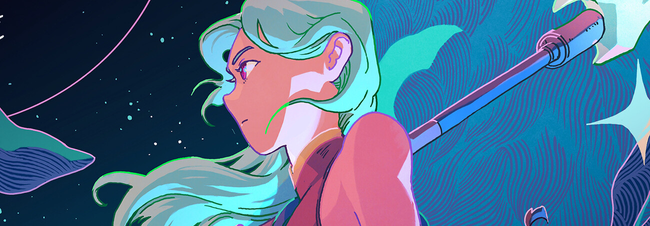
Whether it's fair or not, Sea of Stars and Chained Echoes were a pair of kindred spirits over the last year. Both are crowd-funded JRPG-inspired throwbacks, meant to evoke the nostalgia of the 16-bit era JRPG that many of us grew up with. Seas of Stars even recruited Yasunori Mitsuda to provide some work for the game. Sea of Stars manages to impress just slightly more than Chained Echoes, with a more cohesive package overall and fewer shortcomings. The soundtrack, primarily composed by Eric W. Brown, manages to evoke the 16-bit era perfectly. Combined with some fantastic sprite-work, Sea of Stars comes surprisingly close to passing as a game from that era, or at least what my brain tells me games from the mid 90s were like.
Sea of Stars is true to its inspirations, with a fun cast of characters, a decent number of side objectives, a fairly decent story, and a battle system with a surprising amount of depth despite the limited cast and skill list. Whether its collecting rainbow conches, winning games of Wheels, or following through a decent number of sidequests, Sea of Stars doesn't really skimp out in any one area. Puzzles found in dungeons are pretty elaborate, and the game manages to avoid the corridor-dungeon issue that seems to be too prevalent in games big and small.
Sea of Stars primary pitfall is the lack of charisma from its main two protagonists, Zale and Valere. The story frames this in a way as being by design, as the duo grew up in a closed-off academy segregated from the outside world, but the result is a pair of characters taking up the majority of the screentime with basically no charm or personality. Childhood friend Garl picks up some of the slack, but ends up crowding the space for the rest of the party. I still had a great time with the gameplay and dungeon-diving of Sea of Stars, and found it relatively challenging in some of the post-game areas, but the story and characters were a huge letdown regardless.
7) Wartales

This is probably the most unexpected entry on the list. I'm not sure I even knew what Wartales even was when the calendar hit 2023. Turns out it had already been well-regarded in Early Access for quite some time before its official release, and I was simply late to the party. Before I knew it, I had over 100 hours in a game whose charm is actually a little bit hard to describe.
Wartales is themed and presented like a fairly typical western fantasy setting with a fairly typical turn-based CRPG affair. The reason that it manages to be on this list is through the open-ended nature of how the gameplay progresses as your party of travelers grow, get stronger, and interact with the world. The different regions of Wartales are subdivided into individual locations, where each has a sort of "micro-quest" associated with it. This could range anywhere from clearing enemies from a location, learning how to unlock a door, or escorting a character somewhere.
Despite the huge map and large number of quests, designing each individual segment of the game in such a bite-size manner makes time disappear when I was playing this game. There is even a fairly interesting list of unique gear with cool effects that make taking down optional bosses or attempting to fulfill every quest in a region quite rewarding. The way each party-character in the game also ends up taking role in the camp also creates a sort of emergent storytelling that I haven't seen executed so well in a game like this in a while. Despite the characters in the party being pretty much blank-slates, assigned a class and a weapon type, I found myself quite endeared to my cast of characters after witnessing numerous adventures with each of them.
The developers at Shiro Games are also continuously supporting the game past its version 1.0 release, including a new pirate-themed region. I am not sure I plan to go back to check up on my rag-tag band any time soon, but Wartales ended up being maybe my biggest single surprise of the year.
6) Cassette Beasts
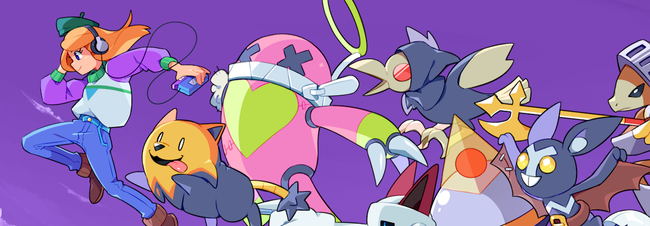
There have been a lot of Pokemon-likes over the years, I'm sure I've already forgotten most of them. At a time when Palworld has had nearly 20 million players before even officially launching, talking about Cassette Beasts might seem a little bit quaint. Still, Cassette Beasts characters, themes, artstyle, OST, and gameplay all surprised me. While it still didn't make the top half of my list, it ended up being my favorite indie-scoped game of the year.
Reminiscing about my time with Cassette Beasts really brings two things to mind right away, the fusion mechanic, and how this interacts with the soundtrack of the game. While there are 100+ beasts available in the game, each can effectively fuse with any other creature in the game to create a list of thousands of fusion possibilities. While this clearly utilized a sort of procedural algorithm in order to accomplish, the results is still very impressive.
My strongest lasting impression of the game, however revolves around its soundtrack, composed by Joel Baylis and performed by Shelby Harvey. Almost every theme in the game comes in two versions, an instrumental version alongside one with vocals. At the outset of any battle in the game, the standard theme would initially play, with the vocalized version seamlessly coming in whenever the player fuses beasts together. Similarly, the town theme would have vocals meshed into the mix whenever in a building interior. It might not sound so impressive on paper, but the execution is incredibly fun. The theming of a sort of parallel world that's trapped characters from multiple different locations and time periods also created the framework for a story that was quite unique. I still listen to the soundtrack from time to time.
5) Wild Hearts
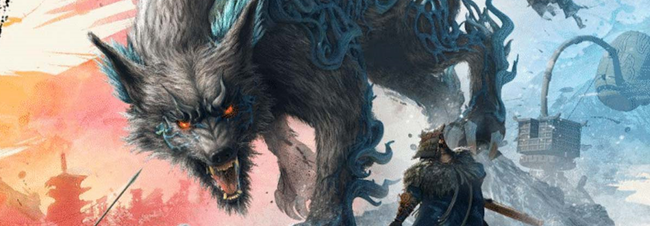
I did not expect to put just as much time into Wild Hearts this year as the PC release of Monster Hunter Rise: Sunbreak, but here we are. I'm not sure that a team-up between publisher Electronic Arts and Toukiden-vets Omega Force working on a Monster Hunter-like was on anyone's bingo cards, and in a world where mediocre clones have come and gone, it was hard to imagine that Wild Hearts would really be any different. However, Wild Hearts ended up being one of my most played games this year, and serves as a worthwhile competitor to Capcom's titan franchise.
Wild Hearts's primary wrinkle is the incorporation of light building elements, both on-the-fly micro-structures that are used in combat, and long-form buildings that gradually expand the player's overall capabilities. Called Katakuri in-game, these elements actually managed to give Wild Hearts an identity of its own. I never got tired of building the giant Pounder mallet and watching a well-timed whack completely stop a monster in its tracks, or watching King Tusk charge me only to run into a quickly-crafted bulwark. The incorporation of these structures reward creativity and planning, as other structures provide the player with upgraded resources or quick traversal options. The human and kemono split on gear and equipment also provided a small little element of player choice for a lot of the end-game armor sets.
Wild Hearts's main drawback was that the itemization in the game is quite cumbersome, with a large number of gear, consumables, cosmetics, and the like. The starting inventory was quite small, and with only limited way to bank multiple items. While learning how to efficiently manage this was part of the progression of the game, I would still hope that a hypothetical follow-up would smooth out the edges here.
4) Star Ocean The Second Story R
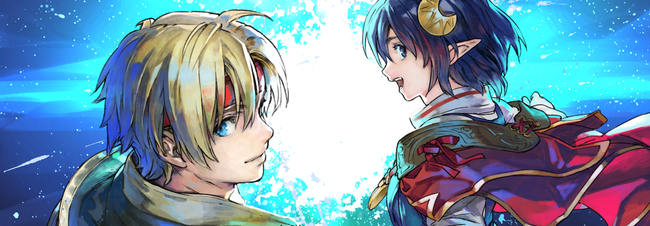
Amongst some of the RPG Site staff, we lovingly refer to Star Ocean 2 as "maybe the only good Star Ocean game". As much of a back-handed compliment that might be, Star Ocean The Second Story R, helped to remind us exactly how good we mean when we say that. Not only is the base experience preserved and made accessible for a new audience, but improvements to general UI and user experience helped to clarify how exactly some of the previous esoteric systems of the game actually work without as much trial and error or consulting of external guides.
The remaster's "HD-2.5D" art style is a perfect way to reinterpret the game's visuals for a new audience, and gorgeous new character portraits by Yukihiro Kajimoto help to only sweeten the deal even further. Star Ocean 2 is truly a game for tinkerers, where the various Item Creation systems can reward those that experiment with powerful gear that will absolutely break the game wide open in the player's favor -- that's part of the fun. Huge improvements to how fast-travel works and removing the veil on where and how to engage with the series-staple Private Actions are so well implemented that I wonder how we ever played the game any other way. While additions to the remaster such as fishing weren't as overall impactful, the whole package manages to hit the "definitive version" moniker without really any caveat at all.
3) The Legend of Zelda: Tears of the Kingdom
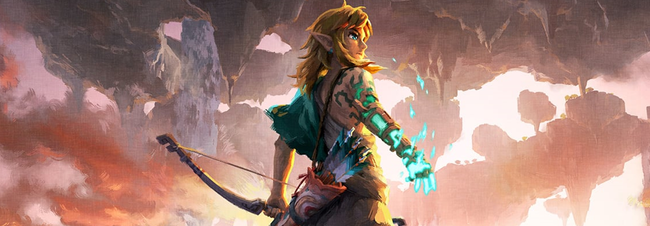
As succinctly stated near the end of RPG Site's own review for the game, the mad lads did it. Somehow. Using the same map and general gameplay flow as Breath of the Wild, it was hard to imagine how The Legend of Zelda: Tears of the Kingdom could top the foundation-upending experience that the original game was for the Zelda series. But the team at Nintendo did it anyway.
The incorporation of the Zonai elements, the new verticality added by the sky islands and Depths, and a return to (somewhat) more-traditionally designed dungeons helped to bridge the divide between old and new-style Zelda experiences. As silly as it might sound, the ability to track every individual cave or well location on the map and find gear cameos from other games or even just a Bubbulfrog made exploring around Hyrule constantly engaging and never boring. Shrines are still fun micro-packages of puzzling new and clever uses of the Ultrahand and other abilities, and being able to fuse components onto weapons and armor completely shifted the item economy when compared to Breath of the Wild.
This doesn't even touch the Zonai-building elements of the game. While I am not personally much of a builder in that way in most games, Tears of the Kingdom allowed me to indulge in the concept just a little -- even if it was just to transport a Korok in the most obnoxious way possible. Also maybe every game should just have an Ascend ability going forward, I wouldn't be opposed.
My only gripe is that the story elements of the game rang a little bit hollow for me, especially as it pertained to Zelda's role in the story. I've never really treated the Zelda games as a strong narrative experience, so this didn't hamper my excitement much at all, but it was my one personal blemish on what I thought was an incredibly engaging experience.
2) Octopath Traveler 2

I was not expecting to enjoy Octopath Traveler II to the extent that I did. The original game did place on my top ten list for 2018, but just barely. The new updates for the game's sequel didn't immediately seem like game-changers, just more Octopath Traveler. So I expected it to be good. I didn't expect it to be great. Without overhauling anything, the developers over at Team Asano managed to polish up almost all of the shortcomings from the original game and deliver on the vision for what an Octopath Traveler game could be.
Small, smart additions like a formal day-night cycle, the ability to perform two path actions per character, and the ability to interact with party chats in more areas, were slight, small tweaks that managed to address the original game's criticisms without upending the concept entirely. Octopath Traveler 2 could have eschewed the 8-individual stories aspect of the game and designed the sequel more conventionally with a standard 8-member party, but that's not what Team Asano decided to do.
Looking back at the 8 stories of Octopath Traveler 2, I'm not sure I could pick a favorite. Partitio and Agnea both have extreme protagonist energy. Castii's story is so resoundingly bittersweet and poignant, while Temenos and Ochette both lead compelling stories in their own right. While I did not personally need the individual stories to tie together in any strong fashion, Octopath Traveler II improves on this as well, leaving an intricate but understated throughline for all the individually comprising narratives told across the eight characters. The additions to the battle system including Latent Powers and EX Skills are so well integrated into the moment-to-moment gameplay that it's hard to imagine looking back that the original game didn't have those mechanics.
Not to mention, I would have never expected composer Yasunori Nishiki to be able to to be able to top what he was able to accomplish on the original game, but he did. I still regularly listen to nearly a dozen songs from Octopath Traveler II's soundtrack, and they never get old. I smiled like an idiot whenever Partitio's theme chimed in near the end of his story segments. Agnea's Song of Hope is an incredibly powerful piece in the context for when it's played in game. The sea battle music has no right to be as good as it is. Throne's final battle theme is appropriately sad and melancholic. I could go on and on and on.
1) Baldur's Gate 3
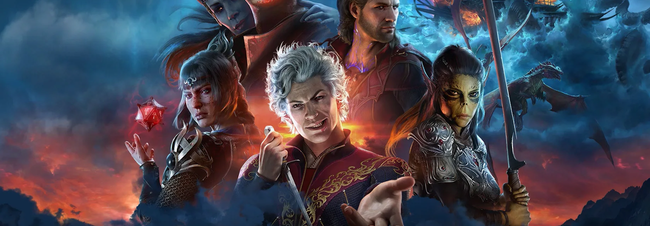
I know at this point, my list looks pretty darn close to the overall RPG Site Game of the Year list, but that's just kinda how things shook out this year. Is Baldur's Gate 3 really that good? Well, I think so. That's why it's here on the list. I've been a fan of Larian Studios ever since Divinity: Original Sin. When I learned that they were going to be following up on a relatively dormant IP and that it would be a turned-based experience, I wasn't convinced that Larian's new game wouldn't end up feeling like Divinity: Dungeons and Dragons Edition. I should have had more faith.
Baldur's Gate 3 does so many things well, and is really a unicorn in the RPG space. The sheer quantity and variety in vocal performances and animations for its wonderful cast of complex and well-written characters, both in and out of the playable party, is impossibly impressive. The turn-based combat utilizes the mechanics of Dungeons and Dragons 5th edition in an incredibly faithful way, and the number of interwoven quests is staggering. Multiple times, I was surprised to see characters that I encountered within the first handful of hours of the game in a short sidequest still interacting with the party two dozen hours later -- player choice and consequence can be found everywhere.
The density of the environments, the number of secrets to discover, and the multiple avenues that quests can be conducted or areas can be explored never ceases to surprise me. Baldur's Gate 3 is also paced quite incredibly well, from both a storytelling standpoint as well as mechanically. Each of the cast members gets an appropriate amount of time in the forefront of the story, enough so that even initially stand-offish characters like Lae'zal can grow and change convincingly as the story progresses. The way that the story incorporates all of the player's various accomplishments in the game's ending sections is also fun and unique.
Baldur's Gate 3 is also not afraid to let players discover things for themselves. So many interactions, quests, and side-events aren't explicitly signposted, and it's incredibly easy to set out on a task, get distracted from that task, follow a narrative tangent in the middle of that distraction, decide to explore the edge of the area you end up at in the process of all this, and then finally make your way back to your initial objective hours and hours later and never feel like you wasted your time. That's what Baldur's Gate 3 was able to accomplish for me multiple times during my 150 hours with the game, and why it's my favorite game of 2023.